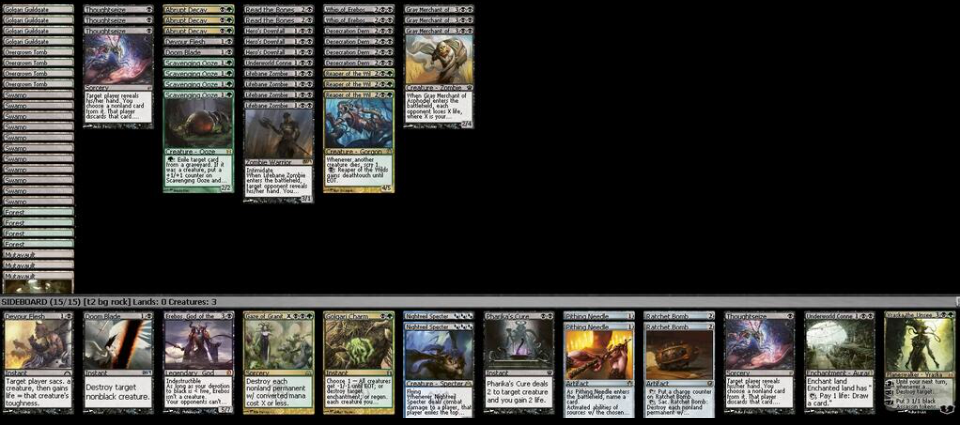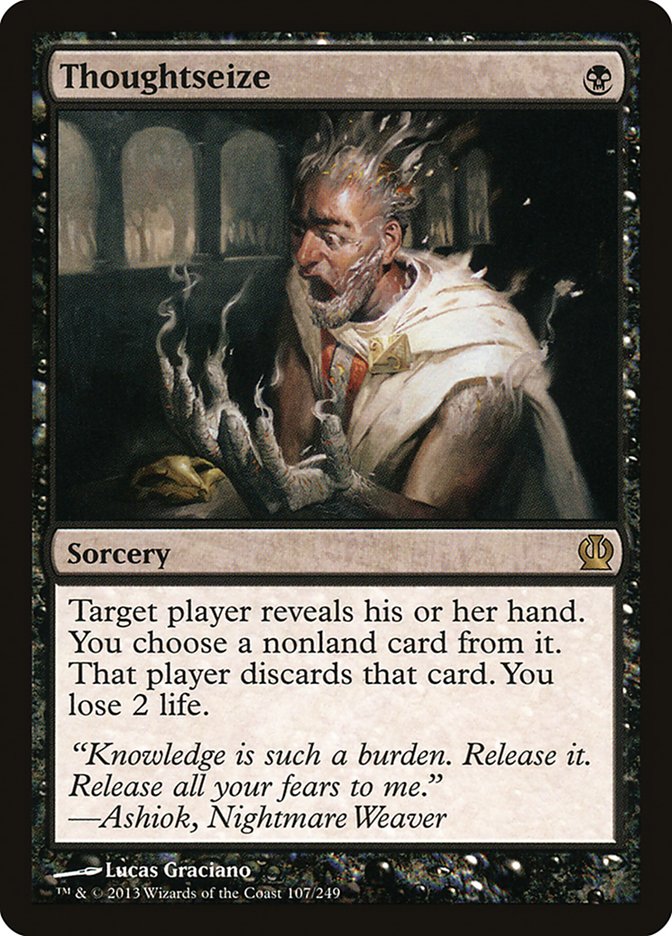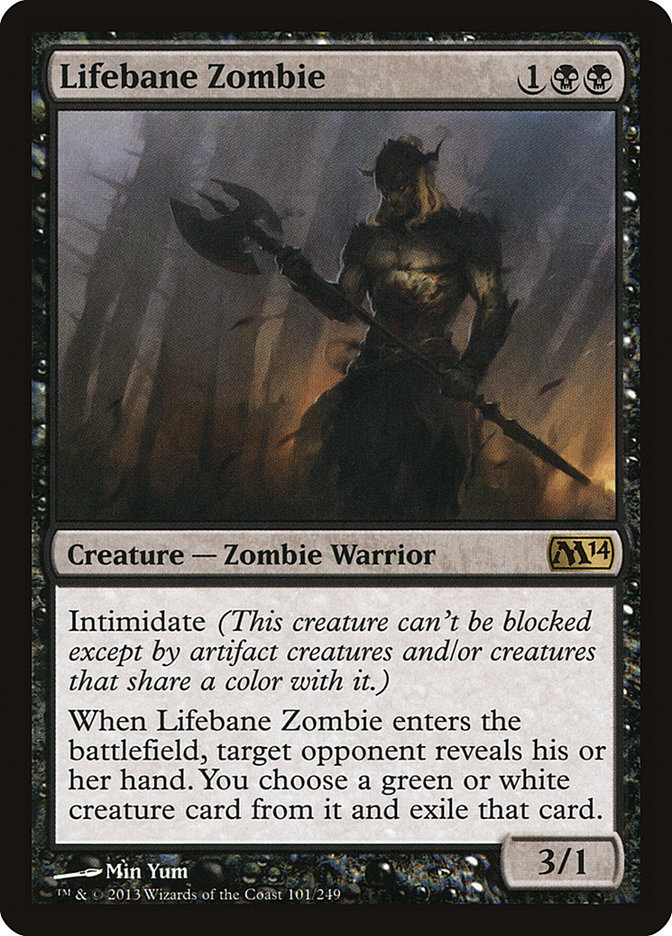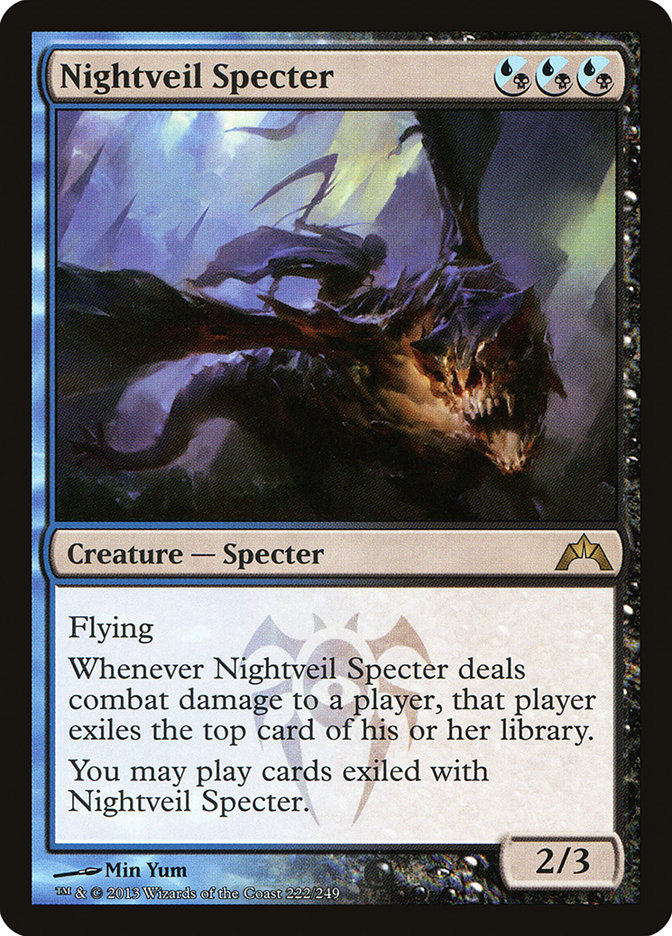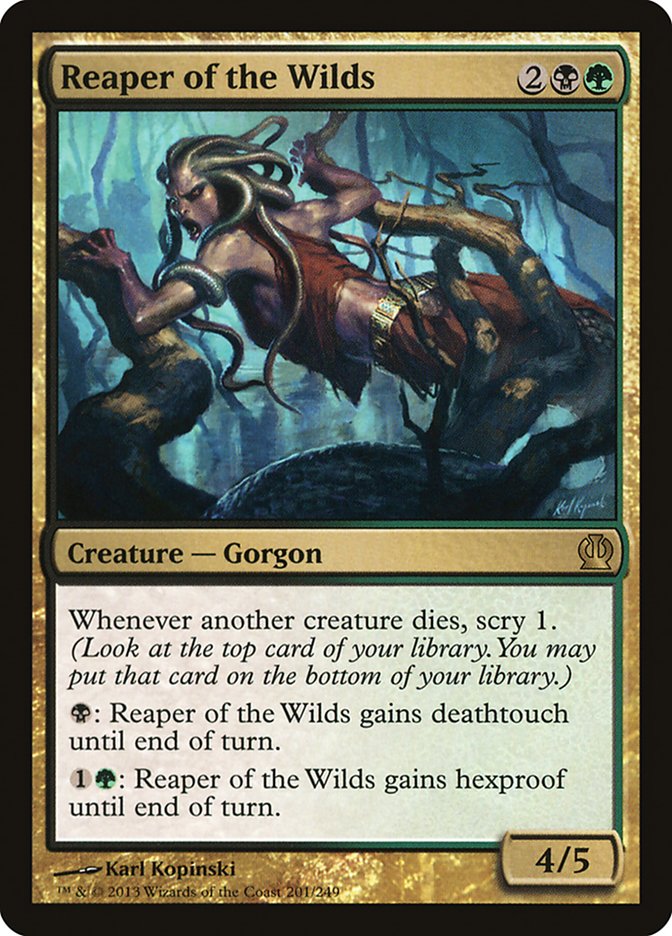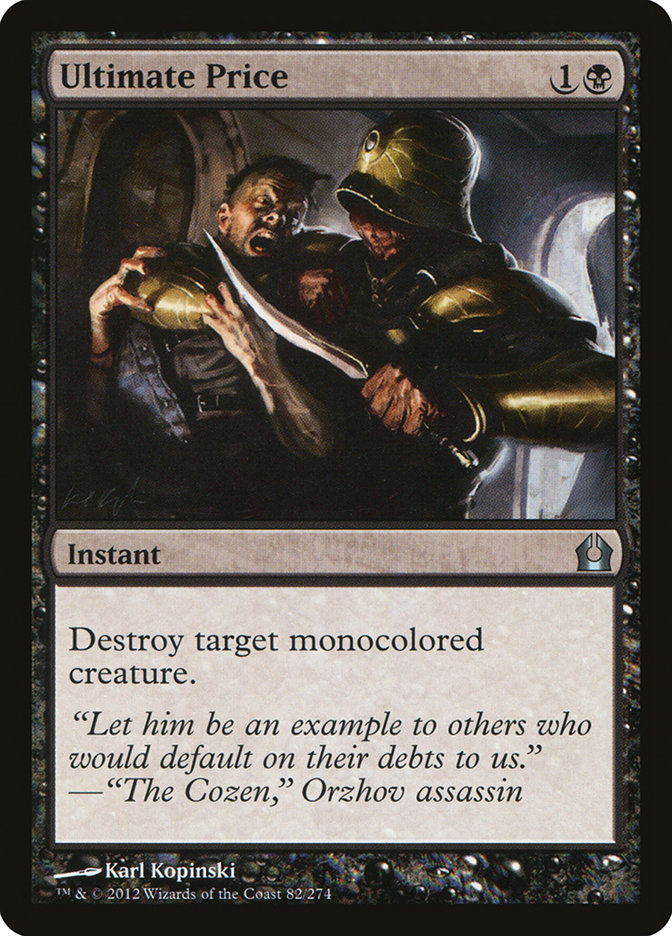If you came here looking to read about how hours of preparation and tuning were rewarded, I’m sorry to disappoint you. If, on the other hand, you want to know how I battled through an open field with a deck I put together five minutes before the event, you’ve come to the right place!
My name is Harrison Hite, and I am a pre-law major at the University of Puget Sound. I am originally from Minneapolis, so I learned the ropes of competitive Magic from Matthias Hunt and the cadre of guys that formed the Minnesota portion of the now-defunct Team Panik. After moving out to Tacoma for college, I met two of my closest friends in fellow students Brian Weller-Gordon and Evan Arkin. If those names sound familiar to you, it is probably because Evan made Top 8 of last year’s SCG Standard Open in Seattle and Brian made the finals of this past Sunday’s Legacy Open.
Both have now graduated from our school and live elsewhere in the Pacific Northwest, so when SCG announced that there would be an Open 2.5 miles from campus with Matthias in the booth, I knew it would be a great chance to see all of my friends again. Due to midterms, however, preparation for said event was another story.
The fact of the matter is that I had no deck as of 11:00 PM on the day before the Standard Open. I texted Brian, who was still down in Portland, and asked him if he had anything I could borrow. He responded with this:
This is basically Willy Edel’s deck from Pro Tour Theros with a couple of changes, and apparently it had been doing quite well on Magic Online. Brian told me he had most of it, and I asked him to sleeve it up for me. It turns out "having most of it" was woefully inadequate, and even after borrowing what I could from Magic players on campus, I was still a good ten cards short if not more.
By the time I got registered and picked up a decklist to fill out, it was five minutes before the player meeting. This meant that cards from the sideboard got shifted to the maindeck and random junk from my binder got thrown in the sideboard. Some of the binder fodder seemed reasonable (Skylasher), but some of it is obviously just thrown in there because I was short on time (I’m looking at you, Haunted Plate Mail). With that in mind, I give you the finely tuned masterpiece that I registered on Saturday:
Creatures (18)
- 3 Scavenging Ooze
- 2 Desecration Demon
- 3 Nightveil Specter
- 4 Lifebane Zombie
- 4 Gray Merchant of Asphodel
- 2 Reaper of the Wilds
Lands (25)
Spells (17)

Even though the numbers may not have been right, I would play some number of every single card I put into the maindeck if I were to rebuild this for the post-#SCGSEA/#GPLouisville metagame. Nevertheless, knowing why each card is important is the foundation that allows the deck to be played properly, so I want to explain the role of a few cards in detail.
I’m so happy Wizards took the risk of reprinting this card in Standard! I know that many people feel Thoughtseize leads to games that aren’t fun, but I disagree entirely. In fact, I’d argue that it is fairer in Standard than it is in the Eternal formats! The main reason I’m willing to champion this oft-derided discard spell is because it scales so well with skill level. In Standard, it doesn’t rob the opponent of interaction with your combo the turn before you kill them; it simply takes the card that you feel is the most relevant given the context of both players’ hands and knowledge of the matchup.
It is very easy for a less experienced player to cast Thoughtseize at the wrong time or take the wrong card, but in the hands of a veteran, it not only allows you to take your opponent’s best card but to write down their hand as well. Perfect information lets you get inside your opponent’s head, figure out how they intend to win, and then sculpt a game plan that counters it. It is especially good in Standard right now because all four major decks in the metagame (Mono-Black Devotion, Mono-Blue Devotion, G/R Devotion, and Esper Control) have a lot of cards that fill unique roles rather than a bunch of redundant aggro creatures. A very drastic shift would have to occur in the metagame before I play fewer than four copies of this in any Standard deck containing Swamps.
Ask Matthias how much I love color hosers and he’ll tell you the answer is "a lot." I would go as far as to say that Perish is one of my favorite Magic cards, and Virtue’s Ruin probably isn’t far behind (if you haven’t caught on yet, Brian Kibler and I enjoy very different things when it comes to Magic). There’s nothing I like better than when my opponent loses to a color hoser.
Now, Lifebane Zombie may not be as powerful as some of the hosers Wizards used to print in the good ol’ days, but the tradeoff is that it can be maindecked. If you happen to be playing against a deck with green or white creatures, it’s obviously bananas, but even against other decks it’s still a 3/1 intimidate that allows you to see the opponent’s hand when it enters the battlefield. In the same vein as Thoughtseize, it gives you perfect information so you can sculpt a game plan even when it isn’t taking Polukranos or Arbor Colossus from your opponent’s hand.
It is terrible against opposing black decks, and since Mono-Black Devotion did so well in Louisville, I would probably cut down to three copies in the maindeck. Moving the fourth one to the sideboard frees up space for the fourth copy of the next card on our list.
This card overperformed all day for me. Because I was playing green, playing against the G/R Devotion decks meant I only had to steal one land that produced red mana before I could cast anything I hit with Specter. Additionally, because of its three toughness, Specter basically gained between one and three life the turn it was cast by keeping their mana accelerants and Burning-Tree Emissarys at bay. In the mirror, it’s quite good because it doesn’t die to Ultimate Price or Doom Blade, and you can start casting whatever it exiles right from the first attack. It also stops both of Mono-Blue Devotion’s one-drops as well as Tidebinder Mage, and his triple devotion to black works really well with Gray Merchant of Asphodel.
This deck is in the business of killing creatures, but with a limited number of ways to gain card advantage, it can begin to have trouble after all of its initial answers are used up. Having a Reaper of the Wilds in play ensures that you get to manipulate your deck with every kill spell you cast, and it’s also no slouch when it comes to killing your opponent. In the mirror, its ability to gain hexproof in response to a removal spell can force your opponent to expend multiple cards to deal with it in a purely attrition-based matchup. If Mono-Black Devotion has a surge in popularity due to GP Louisville, I would find room for a couple of extra copies in the sideboard and debate boarding out Desecration Demon entirely (though I’m not sure this is correct).
This card was already better than Doom Blade, and now that Mono-Black Devotion won GP Louisville, I think it’s where you want to be moving forward. I was happy with having access to all four copies between the maindeck and sideboard, and I can say that it is probably the card I most frequently boarded in the fourth copy of. However, its lack of use against Esper Control is seriously suspect, which is not true for the other two removal spells (Abrupt Decay / Ultimate Price) on our list, so it probably needs to stay at three copies.
Underworld Connections: This card is better than Read the Bones in this type of deck because in any matchup where you can afford to give up tempo by expending mana and life to draw cards you want more than a one-time Divination. It also adds two black to your devotion for Gray Merchant of Asphodel.
Here are a few interesting things that happened over the course of the tournament.
Round 2: Zaiem Beg with G/R Devotion
I don’t remember the game that I lost in this round, but I know I won a game at one life due to Lifebane Zombie being unblockable and Gray Merchant saving me from the brink of death. In the other game that I won, I cast Nightveil Specter on turn 3 and 4 and used most of the cards that were exiled from them to my advantage. This was the first round where I was convinced that Nightveil Specter was an all-star, but it was only the beginning.
Round 5: Christopher Morris-Lent with Mono-Black Devotion:
I should give credit where credit is due and tell you that this is where I got the article title. Chris and I played a mirror match (he had a small blue splash for some cards I don’t remember seeing), and every time he cast Gray Merchant it was either "merchandise you" or "attempt to sell you some merchandise."
My Abrupt Decay taking out his Underworld Connections combined with his inability to kill Nightveil Specter in either of the games I won spelled victory for me. This was also the matchup that convinced me that Erebos is marginal at best, as he drew a copy of the God twice and it didn’t do anything of relevance either game. I can imagine wanting it out of the sideboard for the mirror, but by the time he had it in game 3, I was pressuring him too hard with a Desecration Demon for him to have enough time to draw anything with it. On the whole, though, this was a very enjoyable match, and I thank Chris for having a table presence that makes everyone loosen up and enjoy themselves.
Round 8: Chad Taylor with Mono-Blue Devotion
This was the only time I played against Mono-Blue Devotion, and it was my only loss in the Swiss. The matchup felt unfavorable, but I would need a larger sample size to say for sure. Having no answers to a resolved Thassa, God of the Sea is a problem, and it’s one of the more important cards to take with Thoughtseize for that reason. I can see this matchup being fine if you answer everything they do and don’t let them out-card you with Bident of Thassa or Jace, Architect of Thought, but I don’t think that happens very reliably and was happy that I only had to play the deck once.
Round 9: Evan Arkin
It was nice to sit down against a friend in the feature match area for what I thought was my win-and-in match because I could allow myself to relax a little bit knowing that even if I lost he was in. After Evan was one mana short of killing me for multiple turns in game 1, I finally closed out the game with Desecration Demon. In game 2, I drew all three of my Scavenging Oozes and a boatload of removal to ensure that every creature he played died and gained me a life while growing one of my Oozes. It sucks to knock a friend out of contention, but he had his Top 8 last year. It was my turn plain and simple.
My quarterfinal match was an unremarkable loss to Esper Control. I couldn’t do anything in game 1 after keeping three lands, Thoughtseize, and two Lifebane Zombies on the mull to six and just topdecked Ultimate Prices and lands, and then I got wrecked by Blood Baron of Vizkopa in game 2. I don’t feel like I misplayed or kept bad hands in either game, and my sideboarding plan was what it was and didn’t work out, so there isn’t a lot to say.
Before I go, I want to revive the old tradition of props and slops, mostly so that I can give credit where credit is due.
Props
Brian Weller-Gordon for lending me a deck on eight hours’ notice, staying up until three in the morning celebrating with me before sacking out on my floor, waking up four hours later, and making it all the way to the finals of the Legacy Open (random note: my room was the only place either one seed at the end of the Swiss slept all weekend, so clearly it’s lucky).
Matthias Hunt for not only being there when I made my first Top 8 but literally doing commentary on the SCGLive feed in front of thousands people when my opponent extended the hand (you have no idea what this meant to me, as he is really the one person who has taught me the most about how to play the game competitively) and then being a good enough sport to come out with me despite having to get up early for another grueling day of commentary.
Thomas Overton for being my handler from rounds 6 through 10. He kept me calm, did breathing exercises with me, got me food and water, watched my stuff, etc.
Liz and Caleb for giving me food, drink, and moral support in between rounds.
Kazuya Tamura for driving me home after our celebration dinner.
All of the judges and tournament staff for running a solid event.
Glenn Jones and Cedric Phillips for giving me the opportunity to write this article.
Evan Arkin/G Pelly/Joe Naseef for their support.
Anyone I forgot to name who helped me throughout the weekend.
Slops
My tiebreakers for being terrible and making me play all ten rounds of the Swiss despite the fact that I started the event 7-0. If I had beaten Evan in round 9 and lost round 10 to miss Top 8, I would have never heard the end of it. Just thinking about the fact that it was even a possibility for 45 minutes made me shiver.
Me for not figuring out that I could have intentionally drawn into the money at 5-3-1 in the Legacy Open because I assumed they wouldn’t have given us a feature match if we could ID.
Moral of the story: do the math anyway!

